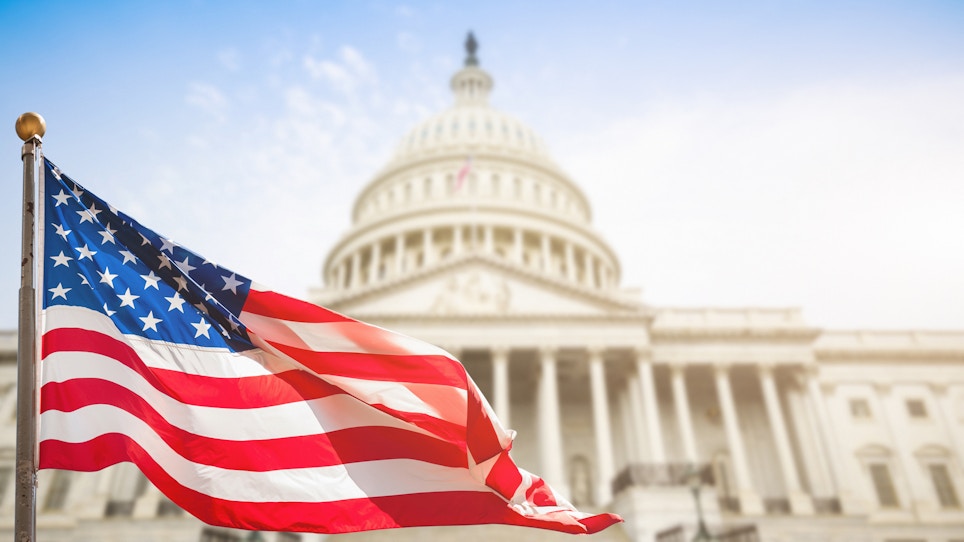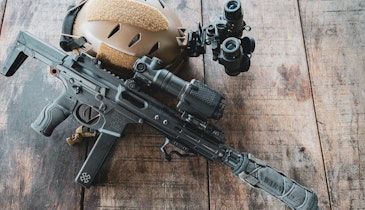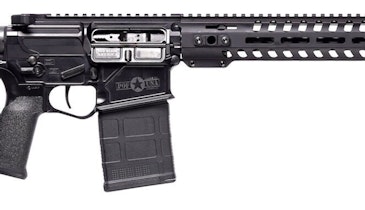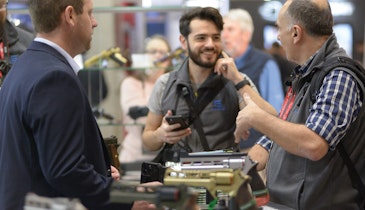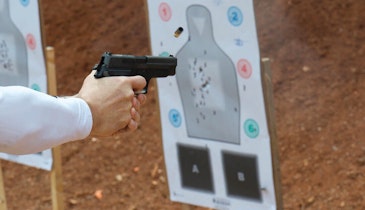There is no need to be silent about silencers anymore.
The sound of silence is triggering a loud response throughout the land, as well as in the halls of Congress as solons consider a measure called the Hearing Protection Act. Say What? Can't hear you. The matter is all about removing restrictions on firearms that have been in place since the 1930s. What's the big deal about taking the bang out of shooting?
We’re talking about suppressors here — silencers, if you will. With luck, these noise mufflers will regain their rightful place in Gundom in the near future. Perhaps it’ll be quicker than some imagine.
Photos on the Internet showing Eric Trump shooting with a suppressor are a good hint about how the current administration might view such things.
H.R. 367, otherwise known as the Duncan-Carter Bill (Rep. Jeff Duncan, R-SC; and John Carter, R-TX), or the Hearing Protection Act, was reintroduced Jan. 9 and was referred to the sub-committee on Crime, Terrorism, Homeland Security and Investigations Feb. 6.
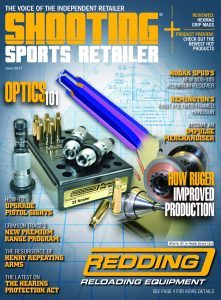
From our June issue
According to the government: “This bill amends the Internal Revenue Code to: (1) eliminate the $200 transfer tax on firearm silencers, and (2) treat any person who acquires or possesses a firearm silencer as meeting any registration or licensing requirements of the National Firearms Act with respect to such silencer. Any person who pays a transfer tax on a silencer after October 22, 2015, may receive a refund of such tax.
“The bill amends the federal criminal code to preempt state or local laws that tax or regulate firearm silencers.”
Translate that to mean if the bill becomes law, silencers will be handled similarly to long guns in that there will be no added silencer-specific paperwork as in the past and no IRS fee involved.
In fact, if adopted as introduced, many folks who have paid the $200 fee would get it refunded thanks to a retroactive provision that goes back to when it was first introduced by Rep. Matt Salmon, R-AZ, in 2015.
The American Suppressor Association (ASA) explained its view of silencers, how they work and what benefits they provide. It’s report stated:
“Also known as silencers, suppressors are the hearing protection of the 21st century sportsman. Despite common Hollywood-based misconceptions, the laws of physics dictate that no suppressor will ever be able to render gunfire silent. Suppressors are simply mufflers for firearms, which function by trapping the expanding gasses at the muzzle, allowing them to slowly cool in a controlled environment. On average, suppressors reduce the noise of a gunshot by 20 to 35 decibels (dB), roughly the same sound reduction as earplugs or earmuffs. In addition to hearing protection, suppressors also mitigate noise complaints from those who live near shooting ranges and hunting lands.
“Unfortunately, suppressors have been federally regulated since the passage of the National Firearms Act of 1934. The NFA regulates the transfer and possession of certain types of firearms and devices, including suppressors. Currently, prospective buyers must send in a Form 4 application to the ATF, pay a $200 transfer tax per suppressor, undergo the same background check process that is required to purchase a machine gun, and wait months for the ATF to process and approve the paperwork. In stark contrast, many countries in Europe place no regulations on their purchase, possession, or use.”
This bill is among many things thrown onto the political bandwagon in the aftermath of the 2016 elections. Now that control of both houses of the legislature, as well as the executive branch, are now under the control of right-thinking Americans (and perhaps the judiciary will join those ranks soon with the appointment of right thinking Supreme Court justices), thing could change.
It is fascinating that it has taken 83 years to finally undo, at least in part, a dumb piece of legislation. Silencers never should have been so restricted in the first place. This is a classic example of government overreach when it comes to emotional overreaction to situations.
The NFA was a knee-jerk reaction to antisocial behavior that came as a result of the prohibition of booze. Prohibition was in force from 1920 to 1933, and the 1934 NFA addressed perceived problems that actually had been resolved the year before when prohibition ended.
A Feb. 6 article by Sari Horwitz in the Washington Post indicated that the Bureau of Alcohol, Tobacco, Firearms and Explosives (ATF) has been considering lifting some restrictions, including those in silencers.
“The second-highest-ranking official at the Bureau of Alcohol, Tobacco, Firearms and Explosives has written a proposal to reduce gun regulations, including examining a possible end to the ban on importing assault weapons into the United States,” the Washington Post article stated.
“The ‘white paper’ by Ronald B. Turk, associate deputy director and chief operating officer of the ATF, calls for removing restrictions on the sale of gun silencers; allowing gun dealers to have more guns used in crimes traced to their stores before the federal government requires additional information from the dealer; and initiating a study on lifting the ban on imported assault weapons,” the article reads.
Given social trends, changes in the government and logic, it looks as though silencers could become a normal part of the gun business sometime this year. Exactly when depends more on how Congress wants to schedule its activities than on any external forces. It’s about time.
